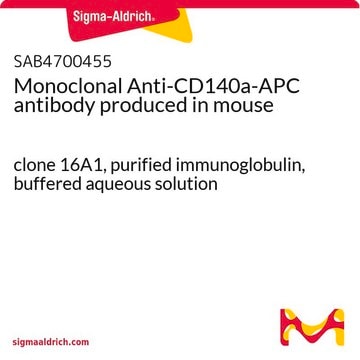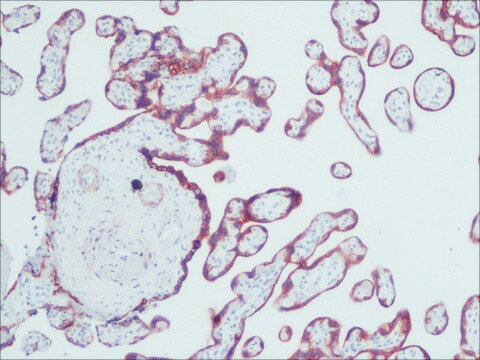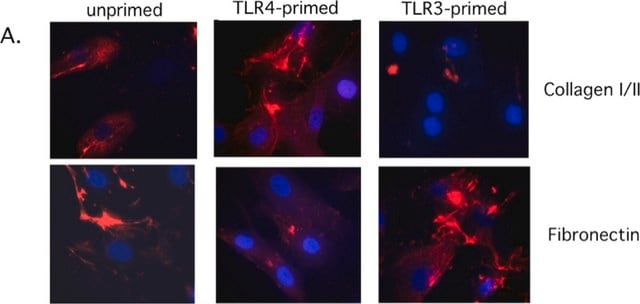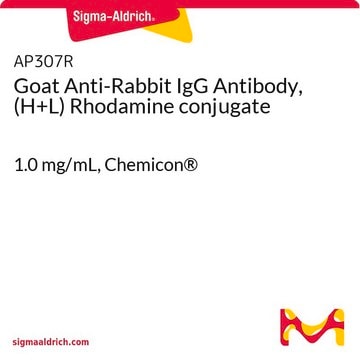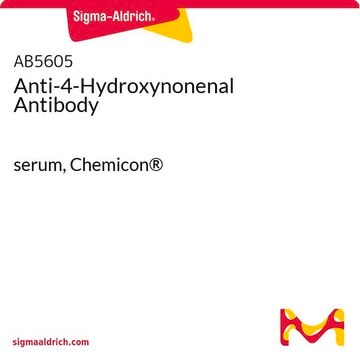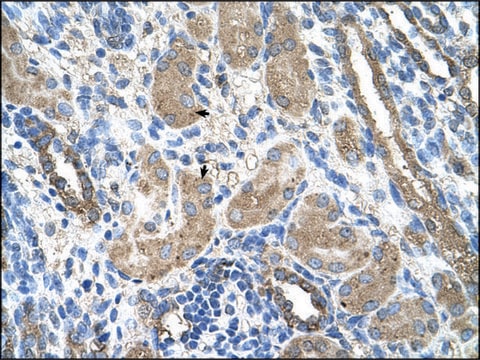FCMAB412F
Milli-Mark® Anti-Collagen Type I-FITC Antibody, clone 5D8-G9
clone 5D8-G9, Milli-Mark®, from mouse
Synonyme(s) :
Alpha-1 type I collagen
About This Item
Produits recommandés
Source biologique
mouse
Niveau de qualité
Conjugué
FITC conjugate
Forme d'anticorps
purified immunoglobulin
Type de produit anticorps
primary antibodies
Clone
5D8-G9, monoclonal
Espèces réactives
human
Fabricant/nom de marque
Milli-Mark®
Technique(s)
flow cytometry: suitable
Isotype
IgG1κ
Numéro d'accès NCBI
Numéro d'accès UniProt
Conditions d'expédition
wet ice
Modification post-traductionnelle de la cible
unmodified
Informations sur le gène
human ... COL1A1(1277)
Description générale
Spécificité
Immunogène
Application
Cell Structure
Qualité
Description de la cible
Forme physique
Stockage et stabilité
Remarque sur l'analyse
HEK293T cells
Informations légales
Clause de non-responsabilité
Vous ne trouvez pas le bon produit ?
Essayez notre Outil de sélection de produits.
Code de la classe de stockage
10 - Combustible liquids
Classe de danger pour l'eau (WGK)
WGK 2
Point d'éclair (°F)
Not applicable
Point d'éclair (°C)
Not applicable
Certificats d'analyse (COA)
Recherchez un Certificats d'analyse (COA) en saisissant le numéro de lot du produit. Les numéros de lot figurent sur l'étiquette du produit après les mots "Lot" ou "Batch".
Déjà en possession de ce produit ?
Retrouvez la documentation relative aux produits que vous avez récemment achetés dans la Bibliothèque de documents.
Articles
Flow cytometry dye selection tips match fluorophores to flow cytometer configurations, enhancing panel performance.
Flow cytometry dye selection tips match fluorophores to flow cytometer configurations, enhancing panel performance.
Troubleshooting guide offers solutions for common flow cytometry problems, ensuring improved analysis performance.
Troubleshooting guide offers solutions for common flow cytometry problems, ensuring improved analysis performance.
Protocoles
Learn key steps in flow cytometry protocols to make your next flow cytometry experiment run with ease.
Explore our flow cytometry guide to uncover flow cytometry basics, traditional flow cytometer components, key flow cytometry protocol steps, and proper controls.
Explore our flow cytometry guide to uncover flow cytometry basics, traditional flow cytometer components, key flow cytometry protocol steps, and proper controls.
Learn key steps in flow cytometry protocols to make your next flow cytometry experiment run with ease.
Notre équipe de scientifiques dispose d'une expérience dans tous les secteurs de la recherche, notamment en sciences de la vie, science des matériaux, synthèse chimique, chromatographie, analyse et dans de nombreux autres domaines..
Contacter notre Service technique